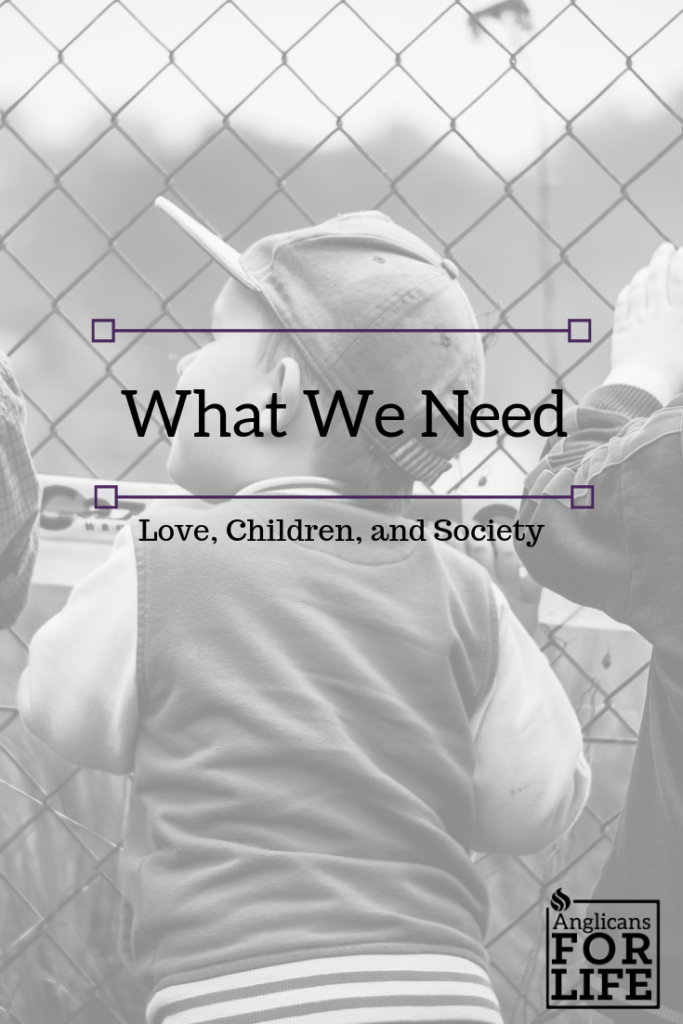
Several months ago, Senator Mike Lee made a bold and, for many, a wildly counterintuitive speech concerning the Green New Deal, where he claimed that “the solution to so many of our problems, at all times and in all places is to: fall in love, get married and have some kids.”
This, of course, was received derisively in much of the media, many of whom consider it self-evident that “many of our problems,” (particularly climate change) stem from overpopulation (an old claim that keeps resurfacing). But Lee’s comment was also misunderstood. For example, after beginning her opinion piece with the quip, “At least one GOP senator believes that to fight climate change, all you need is love,” Colby Itkowitz of the Washington Post reported that, “During floor debate ahead of a vote on the Green New Deal, Sen. Mike Lee (R-Utah) told his colleagues that if they really want to address environmental concerns they’ll encourage people to couple off and have more babies.”
Well, not really. Senator Lee was not suggesting people “couple off.” I won’t presume to speak for Senator Lee here, but I doubt that he would dispute that many of our culture’s social problems arise from denying the centrality of marriage, particularly as it involves having children. Rather, Lee’s solution was more precise—“fall in love, get married, and have some kids.” The love and the marriage part are not ancillary.
Marriage, of course, is God’s idea, as is the begetting of children. God ordained that they belong together. This does not mean that children conceived apart from marriage are not created in the image of God, or are not precious in His sight. They certainly are, on both counts. But it is well established that having children apart from marriage leads to a host of problems, both psychological and societal, that children raised by married parents largely do not have.
Yet an increasingly substantial part of our culture thinks that our problems, whether social or environmental or other, can be solved apart from God (and therefore apart from God’s ways), and replaced by a commitment to rights or the imposition of laws enforced by the State. The concerns with this line of thinking are legion, but let me mention just one. Unless compelled, people will not respond to a call to duties imposed upon them, particularly duties in which they do not believe. The threat of force therefore becomes necessary. A police state can be very effective in making sure people do what they are told. Which is exactly where we are headed.
Love, on the other hand, seeks the good of others, often at great cost and without compulsion. But love does not come naturally—it must be learned. And marriage and children are the means—not the only means but perhaps the chief means—by which we learn to love. Concerning children, Joel Budziszewski (What We Can’t Not Know, Dallas: Spence Publishing, 2003: 92), says it well:
Offspring convert us; they force us to become different beings. There is no way to prepare for them completely. They crash into our lives, they soil their diapers, they upset all our comfortable arrangements, and nobody knows how they will turn out. Willy-nilly, they knock us out of our complacent habits and force us to live outside ourselves; they are the necessary and natural continuation of that shock to our egotism which is initiated by marriage itself. To receive this great blessing requires courage.
In the end, courage is rooted in love. Costly sacrifice that is willing to lay aside one’s rights and/or desires for the good of another is rooted in love. That is not to say that rights and laws are not important. They are. But they are also easy. It is much easier to lay down and enforce a law than to take the long and hard road of learning to love. So while laws are important, they are only a second tier, rear guard effort. And they are never enough.
Let’s return to climate change, laying aside the science for the moment. The common refrain is that we must make costly sacrifices, particularly for future generations. Why would people want to do that? From where does a concern for future generations come? It is hardly surprising that it is precisely those who have children that are most concerned about future generations. And it is not just because such people care only about their own children. Again, children teach us to love—not just to love them, but to love others as well. The bonds of family are the primary training ground through which we learn to love anyone. Apart from love, all we have left is regulations, that in the end must be enforced.
Perhaps Itkowitz, albeit unwittingly, got to the heart of Lee’s message. I don’t know that Lee would say that “all we need is love.” Perhaps we need more, but most certainly not less.
Written by the Rev. Dr. W. Ross Blackburn. Rev. Blackburn is the Rector of Christ the King, an Anglican Fellowship in Boone, NC and an Anglicans for Life’s Board Member.
